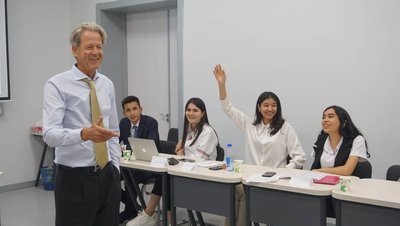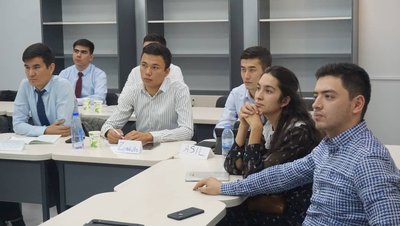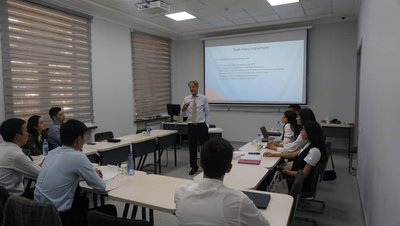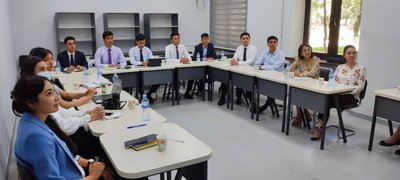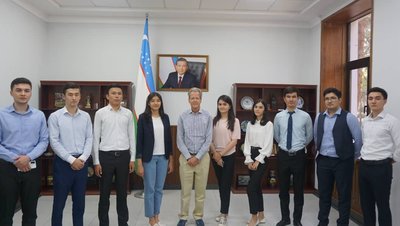27 Sep 2022
Trade negotiation training in Uzbekistan
In the week of 19-23 September, Maarten Smeets (PhD) conducted a 25-hour course on trade negotiations and negotiating techniques at the University of World Economy and Diplomacy (UWED). The training was organized under the “Facilitating the Process of Uzbekistan accession to the WTO” project funded by the European Union and implemented by the International Trade Centre (ITC).
Course participants included some 14 mostly last grade law students, with specialization in WTO law. The main goal of the course was to discuss and explain the key principles of the WTO and more specifically to gain a thorough understanding of how trade negotiations are conducted in the WTO. It included an analysis of the various techniques and approaches applied in negotiating trade agreements in todays’ increasingly complex and challenging trading environment and with members at different levels of economic development. Students learned how to open markets and liberalize trade through multilateral trade negotiations, as well as through plurilateral and sectoral approaches. The course combined theory and practice and identified the main issues and challenges in accession negotiations, with special reference to Uzbekistan It furthermore analyzed the obstacles encountered in specific areas of the DDA negotiations, reviewed and assessed the outcomes of previous rounds of trade negotiations, including MC-12 and assessed the determinants for success.
The students conducted several class exercises and case studies with a specific focus on Uzbekistan and completed quizzes to test their knowledge and assess their own progress made and knowledge acquired through the courses. The course was highly interactive with a lively student participation. Through debates, collective group work and questions and answers sessions, students learned about both the theory and practice of trade policies. They learned how various trade policy instruments have a different impact on trade and which instruments are more efficient and effective in achieving their intended goals. More specifically the discussions focused on the question how the instruments could be best put to use in meeting the government objectives to diversify the economy and integrate more fully into the WTO multilateral trading system. In doing so, students were acquainted with the key challenges that Uzbekistan faces in efforts to complete its accession to the WTO. Students learned about the multilateral and bilateral processes and the importance of the domestic reforms that countries need to undertake in order to meet the WTO legal commitments and obligations. Reference was made to other CIS countries that had successfully completed their accessions. Students are now better prepared to advise on trade policies and how to engage in trade negotiations.


